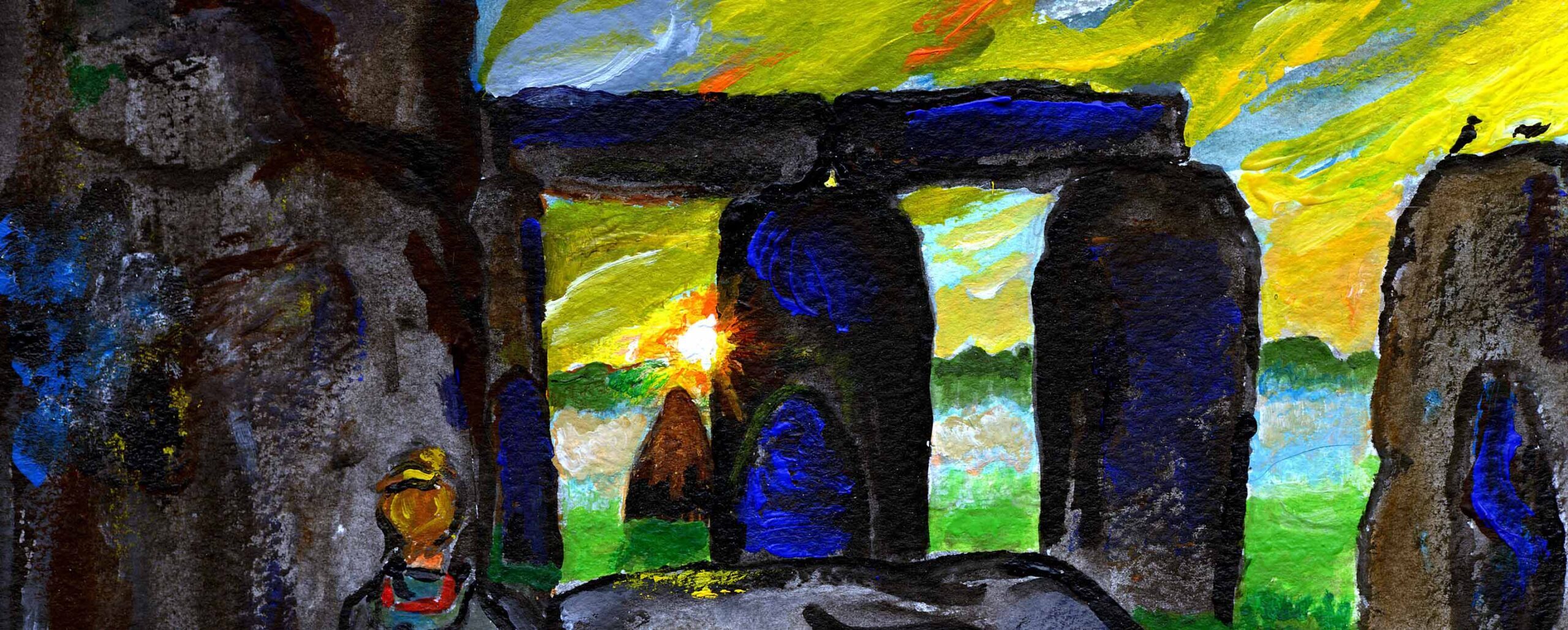On Monday June 27 will come another variant of the peak of summer: the latest sunset, a pendant to the earliest sunrise on June 14. At least, this is the case for places around latitude 40° north, where the Sun won’t set till around 7:33 (standard time, 8:33 by twisted summer clocks). Farther north, it is later – for London, around 8:30 PM (9:30 by clocks). Late sunset makes the day seem longest, since many of us have our eyes open at dusk but not at dawn. Again, for the reasons why earliest sunrise and latest sunset do not coincide with the June 21 solstice, and how they vary with latitude, see our page on the topic.
Homage to Cervantes Department
Don Quixote, the universal book, anticipates everything, and in chapter XXII it makes fun of our current world of “memes” – blogs, tweets, Facebook… The knight and his squire have fallen in with an amateur author who tells them of the treatises he busily scribbles on miscellaneous ridiculous subjects.
Sancho, who had been very attentive to the cousin’s words, said to him, “Tell me, sir – and God give you luck in printing your books – can you tell me (for of course you know, as you know everything) who was the first man that scratched his head? For to my thinking it must have been our father Adam.”
“So it must,” replied the cousin; “for there is no doubt but Adam had a head and hair; and being the first man in the world he would have scratched himself sometimes.”
“So I think,” said Sancho; “but now tell me, who was the first tumbler in the world?”
“Really, brother,” answered the cousin, “I could not at this moment say positively without having investigated it; I will look it up when I go back to where I have my books, and will satisfy you the next time we meet, for this will not be the last time.”
“Look here, sir,” said Sancho, “don’t give yourself any trouble about it, for I have just this minute hit on what I asked you. The first tumbler in the world, you must know, was Lucifer, when they cast or pitched him out of heaven; for he came tumbling into the bottomless pit.”
“You are right, friend,” said the cousin; and said Don Quixote, “Sancho, that question and answer are not your own; you have heard them from someone else.”
“Hold your peace, sir,” said Sancho; “faith, if I take to asking questions and answering, I’ll go on from this till tomorrow morning. Nay! to ask foolish things and answer nonsense I needn’t go looking for help from my neighbors.”
“You have said more than you are aware of, Sancho,” said Don Quixote; “for there are some who tire themselves out in learning and proving things that, after they are known and proved, are not worth a farthing to the understanding or memory.”

Don Quixote tilting at the climate giants. This image from the New Yorker will have to serve until I can find my beloved wooden statuette of him.
__________
IThis weblog maintains its right to be about astronomy or anything under the sun.

Coincidentally ( I assume) on Page 15 of the 2014 Astro Calendar is the diagram titled “Three Kinds of Conjunctions”. Mentally placing the sun anywhere on the ecliptic line in that diagram makes it easy to visualize a line perpendicular to the ecliptic and a 2nd line perpendicular to the right ascension line which makes it easy to understand why the R.A. travel is less than the ecliptic travel from each solstice to the next equinox.
Next I’m going to superimpose a sine wave on the graph on Page 14 showing the equation of time based solely on the obliquity of the Earth, as well as a wave based solely on the elliptical orbit effect.
Then I think that the earliest sunrise, longest day, latest sunset will become crystal clear to me. (I hope)
Thanks for reminding me of those diagrams!
Earliest sunrise, longest day, latest sunset has always been a mystery to me. But it’s starting tp become clearer now. I stumbled on the best explanation yet. It’s on page 14 of your 2014 Astro Calendar. I now see that the equation of time is mostly due to Earth’s obliquity.
And we here in Sydney are experiencing our latest sunrises, with it not poking its head above the horizon until 7:01.
Eric Drooker. https://www.newyorker.com/culture/cover-story/cover-story-2021-11-15
It’s a great drawing, worth finding out who created it. Cheers